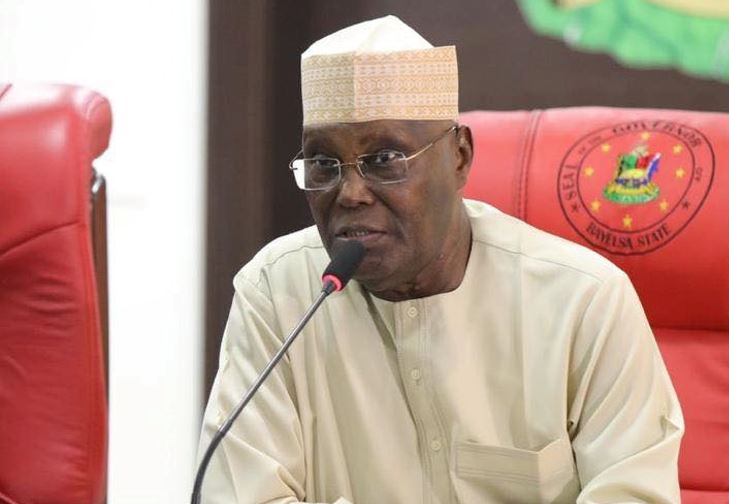BY LEKAN SOTE
It’s going to take more than a yeoman’s concerted effort to solve the multiple, multi-sectoral, energy crisis currently being experienced in Nigeria. This is even without considering the effect of the ongoing Ukrainian-Russian War.
As electricity supply continues to fluctuate, and the tariff rises, the supply of petrol, diesel, kerosene, gas, and aviation fuel significantly drops, even as their prices continue to rise unabated both on the above table “white market” and the dubious black-market.
Curiously, the problem of these Nigerian energy sub-sectors does not reside on the demand side, it has always been on the supply side, almost dependent on a patriarchal and patronising bureaucracy that is slow-footed, completely incompetent and consistently insensitive.
After many years of fumbling commercialization and so-called privatization policy, the government unbundled and sold electricity generating and distributing assets of its Power Holding Company of Nigeria to a bunch of technically and financially incompetent carpetbaggers, while also retaining the sizeable and strategic transmission sub-sector.
It is very much beyond comprehension, if not absurd, that the Federal Government could think of wedging a bureaucratic Transmission Company of Nigeria between commercially operated electricity and distributing companies.
The Yoruba would have described the situation as that of a man who donated a ram to a beneficiary but failed to release the tether so the ram could go with the new owner. It is clear evidence of intent to continue to hold on to the ram.
The unimaginative policy must have been enabled by a wrong-headed legal interpretation of paragraph 13(e) of the Concurrent List in Part II of the Second Schedule of the Nigerian Constitution which provides that “The National Assembly may make laws for the Federation, or any part thereof, with respect to… the promotion and establishment of a national grid system.”
Some cynics contend that the half-hearted privatization policy was carried out in such a way that government patronage, otherwise known as job for the boys, is preserved for those who insist that they can only thrive by holding on to political power because they cannot compete in the proving ground of the business world.
These unconscionable fellows hold the state leviathan captive and use its supreme, final, absolute coercive power to advance only their private interest of unbridled access to the nation’s commonwealth.
The operational model whereby an electricity generating company cannot directly deliver its power to the consumer without going through separate, external and independent transmission and distributing companies will not deliver good results. It’s a booby-trap of sorts.
Vice President Yemi Osinbajo once told Nigerians that the electricity generating companies, or Gencos, produced about 7,000 megawatts of power, whereas the Transmission Company of Nigeria, or the national grid, can carry no more than 5,000 megawatts of electricity to the distributing companies, or Discos.
“The overall effect of the failure of the electricity and fuel components of the energy sector, coupled with the headache of importing raw materials that are procured with scarce and expensive foreign exchange, is a higher cost of production of consumer goods”
Joy Ogaji, Executive Secretary of Association of Power Generating Companies, claims that despite the Gencos’ capacity to produce about 12,000 megawatts of electricity, the Transmission Company of Nigeria that claims to have capacity to distribute 5,500 megawatts to Discos “can’t (even) take more than 4,500 megawatts.”
She explains: “A system stress test that was conducted on the distribution lines showed that the distribution companies… can take (only) 4,600 megawatts. With the available capacity, if I say, ‘Okay, come and take,’ no one can take it.”
Right there is the classic demonstration of the aphorism that a chain is as strong as its weakest link. Clearly, the national grid, completely owned and operated by the government that thrives on bureaucracy cannot match the relatively swifter pace of the commercial Gencos and Discos.
The individual who divided up, or “decoupled,” the components of the Power Holding Company of Nigeria was more interested in a more “democratic” spreading of the juice among the Big Boys than in ensuring effective and efficient delivery of electricity to Nigerians. That individual ought to be ashamed of himself.
Kola Ayeye, banker and investment expert, who was Managing Director of the now-defunct National Bank of Nigeria, has brilliantly helped to put the dilemma of the privatized electricity sector in perspective.
His submission: “The counterparties (just a big word for local investors) that (the President Goodluck) Jonathan Administration favoured with (the electricity aspect of) the energy (sector) were very weak counterparties… They brought very little to the table; not capital, not skills…
“The second is that the policy (or model) is wrong. The power privatization was based on (the premise that in order not to have too much economic power concentrated in a few hands) let us separate generation from transmission and from distribution. It doesn’t work. It hasn’t worked…”
He points out that these legacy companies are “unlike the (telecommunications companies that replaced Nigeria Telecommunications Corporation) that are not beholden to any (external) body to deliver their airwaves end-to-end.”
Things are so bad that it is adversely affecting the health sector. University College Hospital of University of Ibadan now requires patients to pay a levy of N1, 000 to be able to provide electricity services to the hospital.
Here is the justification provided by the Director/Head of Finance and Accounts Department of University College Hospital: “Following the recurring power outage in the hospital, high cost of electricity tariff and inflation in the price of diesel (that is used to run the generators, and) have impeded stable power supply, management has (approved) mandatory payment of utility fee of N1, 000… daily by every patient accessing care in the hospital.”
The failure of the electricity delivery system segues into and puts pressure on, the petroleum products sub-sector of the energy sector. This is compounded by the disgusting failure of the Nigeria National Petroleum Company Limited to run its four refineries effectively and efficiently, not to talk of profitability.
Diesel, black oil and gas, used in running industry boilers and generators; kerosene, a major raw material for the textile industry; and aviation fuel, which is “oxygen” to the aviation industry, are critical to the survival of the Nigerian economy.
One sinister dimension of the needless cost of running generators in lieu of municipal electricity supply is the over-invoicing of the cost of diesel bought to power electricity supplying generators. An expatriate revealed this shameful act on a radio programme.
He claimed that, on the whole, Nigerian industries spend close to $15 billion to buy diesel to fuel generators annually. He added that of that $15 billion, at least $4 billion disappears into the black hole of fraudulent over invoicing.
The overall effect of the failure of the electricity and fuel components of the energy sector, coupled with the headache of importing raw materials that are procured with scarce and expensive foreign exchange, is a higher cost of production of consumer goods.
In line with Ayeye’s observations on the electricity sub-sector, Nigeria’s commercialization and privatization policy must be made to intentionally attract technically and financially competent global players.
Anyone who is convinced that Nigeria National Petroleum Company Limited has woefully failed to deliver petroleum products to the Nigerian economy, shouldn’t be surprised that many won’t encourage government participation in that sub-sector.
It shouldn’t also be a surprise that anyone would suggest that the aspect of Nigeria’s Constitution that empowers only the Federal Government to operate and maintain the national grid must be amended so that electricity companies can combine generating, transmission and distribution capabilities in-house.

